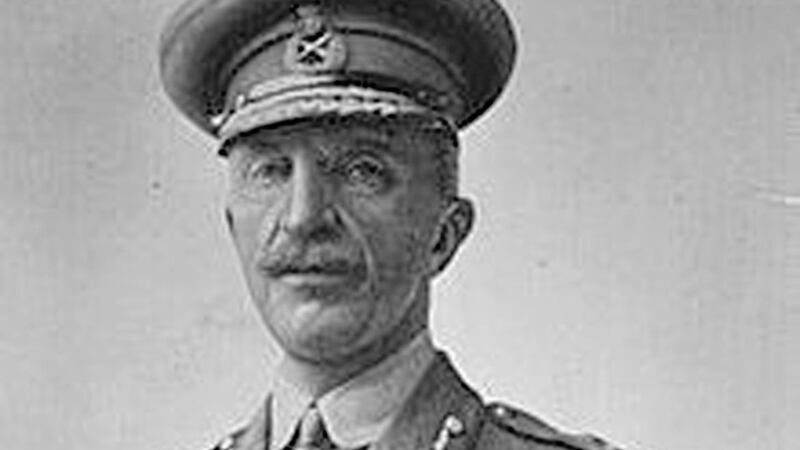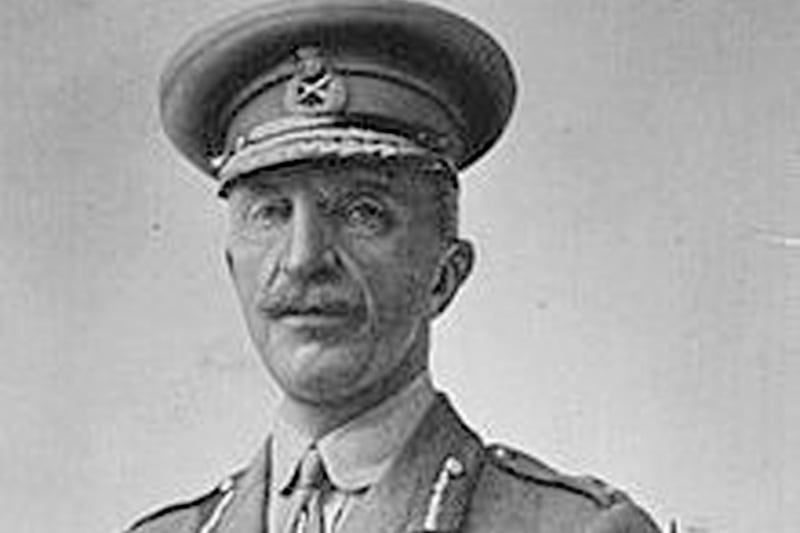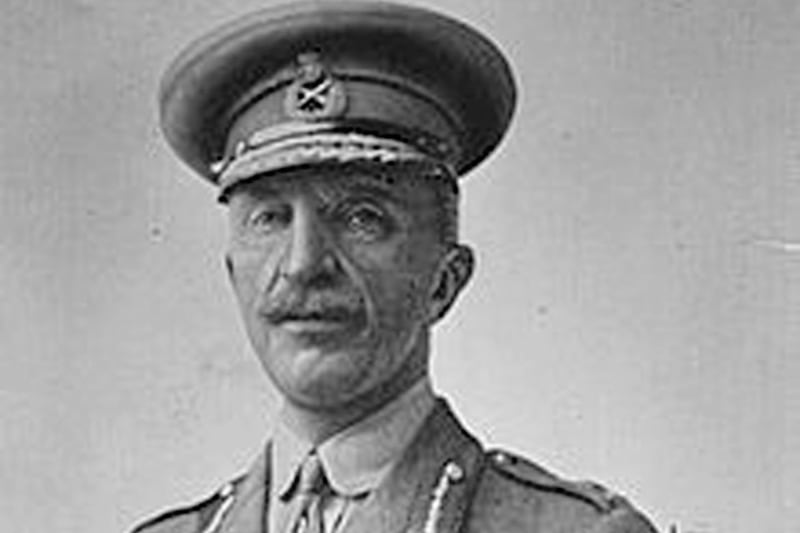A PLAQUE was unveiled in the House of Commons yesterday in memory of Ulster Unionist MP who was shot dead by the IRA 100 years ago.
The plaque to Sir Henry Wilson, a field marshal in the British Army who was elected as MP for North Down, was placed behind the Speaker's chair.
He was killed on June 22 1922 by IRA gunmen in London after he attended a First World War commemoration.
The gunmen were Reginald Dunne and Joseph O'Sullivan - both First World War veterans like Sir Henry.
O'Sullivan had a wooden leg which hampered his escape.
Both were later caught by police and subsequently executed.
Historian and Irish News columnist Dr Eamon Phoenix said Sir Henry, born to a landed family in Co Longford, was shot dead on the orders of republican leader Michael Collins.
He said the killing had a huge effect on Irish politics and helped spark the Civil War between those in favour of the Anglo-Irish Treaty and those against.
At the time, the IRA was divided over the Treaty which had been signed the previous year, bringing the War of Independence to an end.
Dr Phoenix said Sir Henry, born to a landed family in Co Longford, was a "strong Irish unionist and a bitter enemy of Home Rule".
In 1922, he was appointed by Ulster Unionist leader James Craig as military advisor to the new Northern Ireland government.
Dr Phoenix said Collins was deeply concerned by violence in the north at the time, particularly sectarian murders by the B Specials and loyalists.
"He was certainly of the opinion that Wilson was the evil genius of Craig's unionist government in its repression of the nationalist population at that time," he said.
"Almost certainly, although we can't find the document to prove it, Collins gave an order to the IRA in London who were very close supporters of his... for the assassination of Wilson."
Dr Phoenix said he had "no doubt" Collins gave the order a few months before the killing.
"It was a high-level assassination, equivalent to the assassination of a major statesman," he said.
He said the killing had a "transformative effect on Anglo-Irish politics".
"For the previous two months, (Prime Minister David) Lloyd George and (Secretary of State for War Winston) Churchill had been pressing Collins to act against the anti-Treaty IRA garrison in the Four Courts (in Dublin)," he said.
He added: "Collins was reluctant, he feared he would trigger a civil war...but after the assassination of Wilson the pressure from London became unremitting and on June 28 the National Army, with artillery from the British, turned their guns on the IRA garrison.
"That was the beginning of the Irish Civil War which would claim many lives, including that of Collins."
Dr Phoenix said the assassination of Wilson led to a "revenge attack" the next day by the B Specials, who shot three men dead in Cushendall, Co Antrim.
DUP MP Ian Paisley told the BBC he believed the recognition of Sir Henry is long overdue.
"Unfortunately he was murdered by the enemies of Northern Ireland and that murder still resonates today with people, even though he doesn't have much of a family left," he said.
"I think it's up to us, as the inheritors of what that generation gave us, to ensure that his memory will be forever in this place at Westminster."




